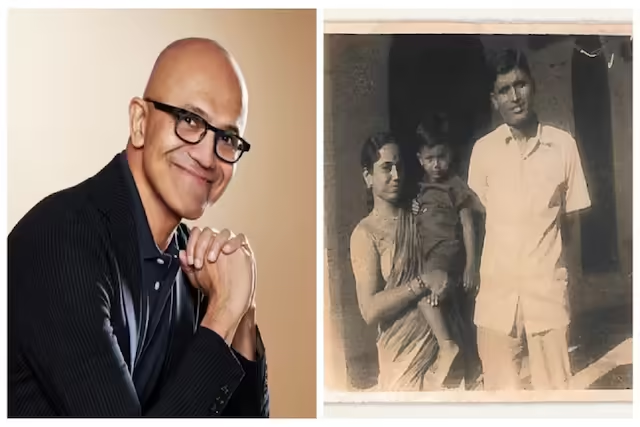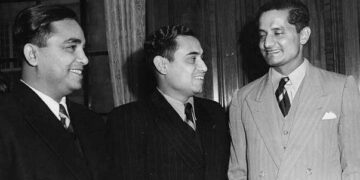Guru Tegh Bahadur (English: Guru Tegh Bahadur, born: 18 April, 1621 AD; death: 24 November, 1675 AD)[1] He was the ninth Guru of the Sikhs. In the history of the world, he has a unique place among those who sacrificed their lives to protect religion and principles. Hindus and Hindu religion were saved by the sacrifice of Teg Bahadur ji. People of Hindu religion also remember him and participate in programs related to him. Tegh Bahadur Singh was appointed Guru of the Sikhs on March 20, 1664 and remained on the throne till November 24, 1675.
Guru Tegh Bahadur Ji was born in Amritsar city of Punjab. He was the fifth son of Guru Hargobind ji. Due to the untimely death of the eighth Guru, his grandson ‘Harikrishna Rai’, he was made the ninth Guru by public opinion. He built Anandpur Sahib and started living there. His childhood name was Tyagamal. At the age of just 14, he displayed bravery in the war with his father against the Mughal attack. Impressed by his bravery, his father changed his name from Tyagamal to Tegh Bahadur (the one with the sword).
The horrific bloodshed in the battlefield had a deep impact on the ascetic mind of Guru Tegh Bahadur Ji and he turned towards spiritual contemplation. Guru Tegh Bahadur Ji, the embodiment of patience, renunciation and renunciation, meditated in solitude at a place called ‘Baba Bakala’ for 20 consecutive years. The eighth Guru Harkishan ji instructed ‘Baba Bakale’ to name his successor. Guru ji visited many places to spread the religion. From Anandpur Saheb via Kiratpur, Plantinga, Saifabad they reached Khiala (Khadal). While preaching here, he reached Kurukshetra via Damdama Saheb. From Kurukshetra, he reached Kadamanakpur via the banks of Yamuna and it was here that he saved Sadhu Bhai Malukdas.
After this, Guru Tegh Bahadur Ji went to areas like Prayag, Banaras, Patna, Assam etc., where he did constructive work for spiritual, social, economic upliftment. Shared knowledge of spirituality and religion. Criticized stereotypes and superstitions and established new ideals. He also did charity work like digging wells, building dharamshalas etc. During these travels, in 1666, a son was born to Guruji in Patna Sahib. Who became the tenth Guru- Guru Gobind Singh.
story of sacrifice
Guru Tegh Bahadur Ji is considered the ninth Guru of the Sikhs. It is during the reign of Aurangzeb. A learned Pandit used to come to Aurangzeb’s court every day and read the verses of Gita and narrate its meaning, but that Pandit used to leave out some verses from Gita. One day the Pandit fell ill and sent his son to recite Geeta to Aurangzeb but forgot to tell him which verses he was not to explain to the king. The Pandit’s son went and narrated the meaning of the entire Geeta to Aurangzeb. After hearing the full meaning of Geeta, Aurangzeb came to know that every religion is great in itself but Aurangzeb was so stubborn that he could not tolerate the praise of any religion other than his own. Aurangzeb ordered everyone to convert to Islam and handed over this task to the concerned officer. Aurangzeb said – ‘Tell everyone either accept Islam or embrace death.’ Since this type of coercion started, the life of people of other religions became difficult.
The Pandits of Kashmir, suffering from oppression, came to Guru Teg Bahadur and told him how they were being persecuted and tortured for accepting Islam. We are being killed. Please save our religion. When Guru Teg Bahadur was listening to the plight of the people, his 9 year old son Bala Pritam (Guru Gobind Singh) came there and asked his father-
‘Father, why are they all so sad? What are you thinking?’
When Guru Tegh Bahadur told all the problems of Kashmiri Pandits to Bala Pritam, he asked – ‘How will this be solved?’
Guru Sahib said- ‘Sacrifice will have to be made for this.’
Bala Pritam said – ‘There is no greater man than you. You save the religion of all of them by making sacrifice.
Hearing the words of that child, the people present there asked – ‘If your father sacrifices himself, you will become an orphan. Your mother will become a widow.
Bala Pritam replied – ‘If millions of children can be saved from becoming orphans by me alone becoming an orphan or if millions of mothers can be saved from becoming widows by my mother alone being widowed, then I accept it.’
After that Guru Teg Bahadur ji told the pundits to go and tell Aurangzeb that if Guru Teg Bahadur accepted Islam then after him we will also accept Islam and if you could not get Guru Teg Bahadur ji to accept Islam then So we too will not adopt the religion of Islam. Aurangzeb accepted this.
Guru Tegh Bahadur himself went to Aurangzeb’s court in Delhi. Aurangzeb gave him many lures, but Guru Teg Bahadur Ji did not agree, so he was tortured, he was imprisoned, an attempt was made to scare Guru Teg Bahadur Ji by killing two disciples, but he did not agree. He told Aurangzeb – ‘If you force people to convert to Islam, then you are not a true Muslim because the religion of Islam does not teach that someone can be converted into a Muslim by torturing him.’
sacrifice
Aurangzeb became furious after hearing this. He issued an order to behead Guru Tegh Bahadur Ji at Chandni Chowk in Delhi and Guru Ji sacrificed himself with a smile on 24 November 1675. In the memory of Guru Tegh Bahadurji, a Gurudwara has been built at his ‘martyrdom site’, whose name is Gurudwara ‘Shish Ganj Sahib’.
writing work
Many compositions of Guru Tegh Bahadur Ji are stored in Mahala 9 of Granth Sahib. He composed simple and emotional ‘Padas’ and ‘Sakhi’ in pure Hindi. In 1675, Guru Ji along with his four disciples was martyred for religious and ideological freedom against injustice and oppression to protect the religion. His unique sacrifice strengthened the country’s culture of ‘Empathy for all religions’ and also gave the mantra to live life fearlessly with religious, cultural and ideological freedom.

![गुरु तेग़ बहादुर (अंग्रेज़ी: Guru Tegh Bahadur, जन्म: 18 अप्रैल, 1621 ई.; मृत्यु: 24 नवम्बर, 1675 ई.)[1] सिक्खों के नौवें गुरु थे। विश्व के इतिहास में धर्म एवं सिद्धांतों की रक्षा के लिए](https://anytvnews.com/wp-content/uploads/2024/11/Guru-Tegh-Bahadur-Death-Anniversary-Know-the-unheard-stories-of.jpg)




